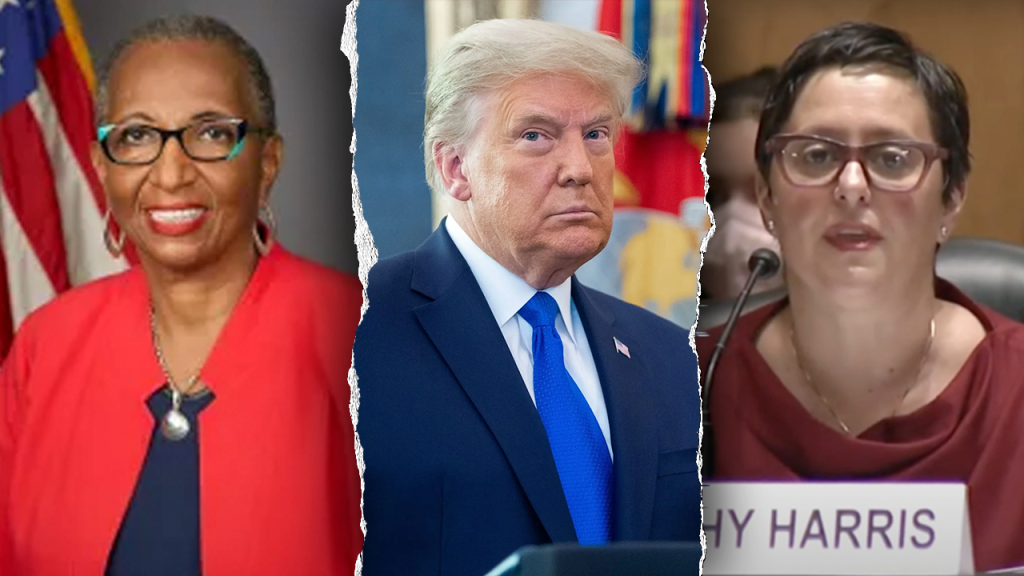In a notable political development, the Supreme Court has upheld the Trump administration’s decision to remove Biden appointees from several federal boards. This decision comes at a time when tensions between the two political parties are high, especially concerning federal appointments and governance. The implications of this ruling may have far-reaching effects on the composition of various federal agencies moving forward.
| Article Subheadings |
|---|
| 1) Supreme Court’s Ruling Explained |
| 2) Background on Federal Appointees |
| 3) Reactions from Political Leaders |
| 4) Potential Impacts on Federal Agencies |
| 5) Future Legal Challenges Anticipated |
Supreme Court’s Ruling Explained
The recent ruling by the Supreme Court is a significant legal and political moment, affirming the Trump administration’s authority to dismiss appointees made by President Biden from various federal boards. The case centered around the contention that a sitting president has the right to change appointed positions to align with their administration’s goals. This pivotal ruling passed with a majority opinion that emphasized the importance of executive powers in effecting change, particularly when it pertains to federal governance.
Legal scholars have voiced that this decision sets a precedent regarding the limits of appointive powers and confirms that the power to appoint and remove officials can remain with the current administration. In the wake of this ruling, future administrations may find themselves with more leeway to effect changes without fear of judicial interference. Proponents argue that this clarity can lead to more cohesive governance, while critics warn it could lead to politicization of federal agencies.
Background on Federal Appointees
Federal appointees typically serve critical roles in government agencies, bringing expertise and direction to their respective functions. Under previous administrations, the process for appointing such officials was often contentious, reflecting the political divides within Congress and different governmental branches. The Trump administration’s approach to these positions has been characterized by aggressive changes aimed at reshaping policy areas such as environment, labor, and health.
In contrast, President Biden’s appointments reflect his administration’s focus on diversity and inclusivity. The tension inherently reflects a broader struggle for influence over federal policy-making, illustrating how changes in presidential leadership can significantly influence the trajectory of government priorities. The Supreme Court’s decision is a continuation of the ongoing tug-of-war between differing political ideologies concerning governance.
Reactions from Political Leaders
The Supreme Court’s ruling elicited strong reactions from political leaders across the spectrum. Many Republicans expressed satisfaction, viewing the decision as a reaffirmation of executive power.
“This ruling respects the sanctity of presidential authority,”
remarked a Republican senator, signaling a belief in a more powerful executive branch. For Republicans, this decision aligns with their long-term strategy of consolidating control over federal appointments.
Conversely, Democratic leaders voiced their concerns about the ruling’s implications. Concerns were raised about the possibility of increased politicization within federal agencies and a potential erosion of professional governance.
“This decision undermines the integrity of our federal institutions,”
stated a leading Democratic senator, highlighting fears of a shift toward a less impartial federal workforce.
Potential Impacts on Federal Agencies
The ruling is expected to have immediate and profound impacts on federal agencies filled with appointees from previous administrations. As the Trump administration moves to replace these appointees, it may shift the operational philosophies and policies within these entities. This change can have a cascading effect on everything from regulatory practices to public-facing service delivery.
Ironically, some analysts assert that these rapid shifts may ultimately lead to instability within agencies that thrive on institutional knowledge and continuity. The abrupt dismissal of experienced officials could hinder operational efficiency and affect long-term projects. Furthermore, the fluidity in appointments could deter qualified individuals from seeking roles in government due to perceived job insecurity.
Future Legal Challenges Anticipated
As the political landscape evolves, future legal challenges regarding federal appointments and removals are anticipated to emerge. Analysts suggest that while the Supreme Court’s decision provides a solid foundation for the current administration’s actions, challenges may arise that explore the nuances of executive authority versus legislative intent regarding appointments.
Furthermore, special interest groups may enter the fray, advocating for protections against what they perceive as politically motivated removals. This landscape will likely lead to more litigation over the powers of executive authority and the rights of individuals appointed to serve in federal capacities. Legal experts predict that these challenges could define the next several years of political and legal discourse.
| No. | Key Points |
|---|---|
| 1 | The Supreme Court upheld Trump’s authority to remove Biden appointees. |
| 2 | The decision highlights the struggle for influence over federal policy-making. |
| 3 | Reactions varied widely, showcasing the deepening divide between parties. |
| 4 | Concerns about the impact on agency stability and continuity have been raised. |
| 5 | Future legal challenges around appointment powers are expected. |
Summary
The ruling by the Supreme Court underscores the ongoing power struggle within the U.S. government concerning executive authority in federal appointments. As the Trump administration leverages this decision, it may lead to significant changes in federal agencies and their operational philosophies. Both immediate and far-reaching consequences can be anticipated, challenging both the administrative landscape and judicial interpretations of the executive’s power in governance.
Frequently Asked Questions
Question: What was the ruling by the Supreme Court about federal appointees?
The Supreme Court upheld the Trump administration’s authority to remove appointees made by President Biden from various federal boards, confirming the executive’s power to effect change within the federal workforce.
Question: How might this ruling impact federal agencies?
The ruling could lead to a significant reshaping of federal agencies, affecting policies and operational behaviors, potentially causing instability due to rapid changes in personnel.
Question: What are the anticipated legal challenges following this decision?
Future legal challenges concerning executive authority and appointment processes are expected, particularly regarding the limits and interpretations of presidential power in dismissing federal appointees.
